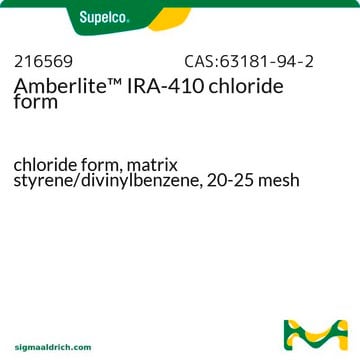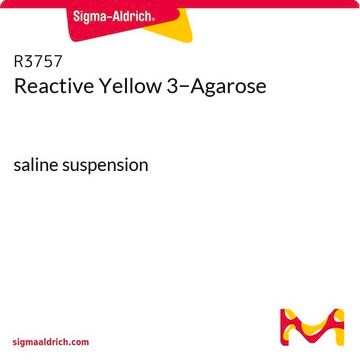244813
Reactive Blue 4
Dye content 35 %
Synonym(s):
1-Amino-4-[3-(4,6-dichlorotriazin-2-ylamino)-4-sulfophenylamino]anthraquinone-2-sulfonic acid, Procion® blue MX-R
About This Item
Recommended Products
form
powder
Quality Level
composition
Dye content, 35%
λmax
595 nm
application(s)
diagnostic assay manufacturing
hematology
histology
storage temp.
room temp
SMILES string
Nc1c(cc(Nc2ccc(c(Nc3nc(Cl)nc(Cl)n3)c2)S(O)(=O)=O)c4C(=O)c5ccccc5C(=O)c14)S(O)(=O)=O
InChI
1S/C23H14Cl2N6O8S2/c24-21-29-22(25)31-23(30-21)28-12-7-9(5-6-14(12)40(34,35)36)27-13-8-15(41(37,38)39)18(26)17-16(13)19(32)10-3-1-2-4-11(10)20(17)33/h1-8,27H,26H2,(H,34,35,36)(H,37,38,39)(H,28,29,30,31)
InChI key
RTLULCVBFCRQKI-UHFFFAOYSA-N
Gene Information
rat ... P2rx1(25505)
Looking for similar products? Visit Product Comparison Guide
General description
Application
Legal Information
Signal Word
Warning
Hazard Statements
Precautionary Statements
Hazard Classifications
Eye Irrit. 2
Storage Class Code
11 - Combustible Solids
WGK
WGK 2
Flash Point(F)
Not applicable
Flash Point(C)
Not applicable
Personal Protective Equipment
Choose from one of the most recent versions:
Already Own This Product?
Find documentation for the products that you have recently purchased in the Document Library.
Customers Also Viewed
Our team of scientists has experience in all areas of research including Life Science, Material Science, Chemical Synthesis, Chromatography, Analytical and many others.
Contact Technical Service











